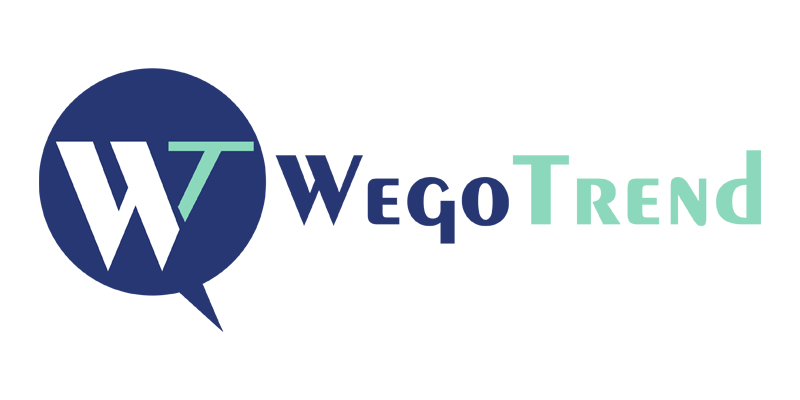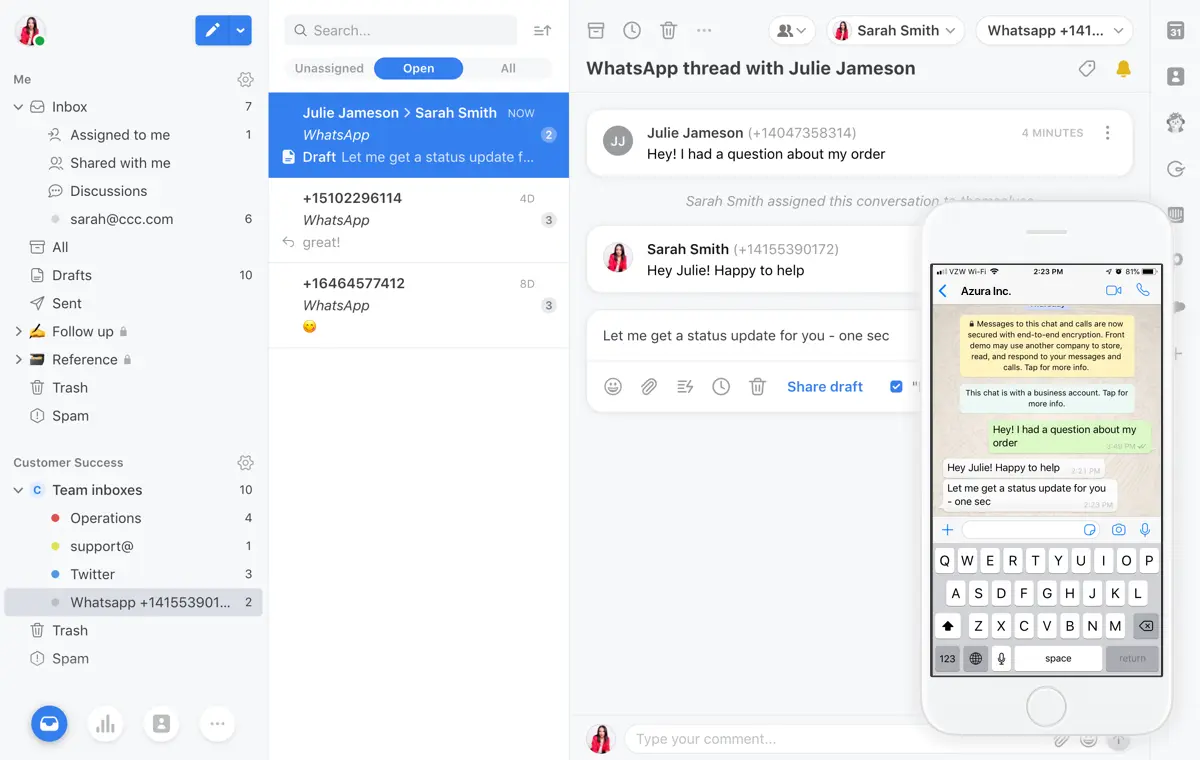WhatsApp has become a global social platform with over 2 billion users. Originally just for text messaging, it now has voice and video calls, file sharing and group chats so it’s a tool for personal and business use. Its simplicity and wide reach has made it the go to app to connect with people whether they are across the street or around the world.
For businesses WhatsApp is an opportunity to connect with customers on a more personal level. Real time messaging means businesses can offer instant support and share updates in real time and enhance the customer experience. You can share multimedia content like images, videos and documents which can be super useful for marketing and customer service.
Another big advantage of using WhatsApp for business communication is that users have a high level of trust in the platform due to end to end encryption. This means messages are private and customers will feel more comfortable to interact more freely and openly with businesses.
Also WhatsApp group and broadcast features can be used to create communities around your brand and have discussions and customer feedback. These interactions will give you valuable insights into customer preferences and behaviour and will help you to tailor your strategy better.
With its wide reach and many features WhatsApp is a tool for any business to boost customer engagement and simplify communication. Whether you’re a small business owner or part of a big company, add WhatsApp to your communication mix and get many benefits and new ways to connect with customers.
What is WhatsApp marketing automation?
WhatsApp gives you a chance to talk to your audience on a more personal level. Unlike other marketing channels, WhatsApp is a direct line of communication that can boost engagement big time. The app allows you to share various types of content – text messages, images, videos and documents – so it’s a great platform for different marketing strategies.
A feature of WhatsApp is real-time messaging which means you can respond to customer inquiries instantly and provide immediate support and build trust. People appreciate quick and helpful responses so this can increase customer satisfaction. And WhatsApp’s status updates allows you to share timely updates and promos to your audience and keep them informed and engaged.
The group chat and broadcast features of the platform can be used for marketing purposes. Group chats allows you to create a community around your brand and encourage customer loyalty and active participation. Broadcast messages allows you to send updates to multiple users at once so important information can reach a wider audience faster.
One of the best things about WhatsApp for marketing is the high open and response rates. Since users check their messages frequently, marketing messages sent via WhatsApp are more likely to be seen and acted upon compared to emails or other digital marketing. This high engagement makes WhatsApp a great tool to drive customer interaction and achieve marketing goals.
Using WhatsApp in your marketing can also give you insights on customer behavior and preferences. You can analyze the interactions and feedback from the app and adjust your marketing to your audience’s needs and wants.
Features of WhatsApp Marketing Automation
WhatsApp automation has many features to streamline and improve business communication. One of the main tools is the WhatsApp Business API which allows to automate interactions with customers on a larger scale. This API allows to send:
- Notifications and updates.
- Shipping updates.
- Customer support messages.
- Marketing content.
- Payment Reminders.
- Tickets updates.
- Personalised offers and other pormotions.
- Cart reminders
- Product recommendations and many more.
Also integrating the API with a CRM helps to manage customer data and personalise interactions based on customer history and preferences. This is key to have a seamless customer experience and to make sure communications are timely and relevant.
Another important one is the use of chatbots. Chatbots can handle common customer queries, provide information and guide users through processes without human intervention. This automation saves time and customers get instant response and overall experience is improved.
Scheduling messages is also a key feature of WhatsApp marketing automation. Businesses can plan and automate the sending of messages and reach customers at the right time. This is very useful for sending reminders, promotions and updates.
And lastly analytics tools within these automation platforms give insights into the performance of the marketing campaigns. These tools track open rates, response time and customer engagement. By looking at this data businesses can refine their strategy and improve their WhatsApp marketing.
With these components businesses can have a complete, efficient and personalized communication strategy to use WhatsApp for marketing.
Steps to Implementing WhatsApp Marketing Automation
So to get started with WhatsApp marketing automation you need to create a business account. The WhatsApp Business app is free and has the basics like business profiles, away messages and quick replies. For more advanced needs businesses may want to look into the WhatsApp Business API which allows integration with CRM systems for a more seamless experience.
Next choose an automation platform that suits your business needs. Whether you need a simple chatbot or a full blown solution like Twilio, choosing the right platform is key. Once you have chosen, set up the settings to automate responses, segment your audience and schedule campaigns. These features will make sure your messages are timely and relevant to each customer segment.
Another important one is to integrate chatbots. Chatbots can handle FAQs, guide users through processes and provide immediate responses. This saves time and increases customer satisfaction by providing instant support.
Scheduling messages is equally important. Automated scheduling allows you to send messages at the best times so your audience gets updates, reminders and promotions when they are most likely to engage.
Analytics built into automation platforms are super useful for tracking your campaigns. These give you insights into open rates, response times and customer engagement so you can tweak your strategy for better results.
By following these steps, businesses can effectively implement WhatsApp marketing automation, streamlining communication and enhancing customer engagement through a personalized and efficient approach.
Developing Effective Marketing Campaigns
Your messages need to be compelling for your WhatsApp marketing campaigns. Start by personalising your messages; addressing your customers by name and tailoring the content to their interests can make a huge difference in engagement. Add multimedia like images, videos or voice notes to make your messages more engaging and visually appealing.
Balance promotional content with valuable information. Share tips, news updates or behind the scenes content that resonates with your audience along with your promotional offers. This keeps your audience interested and more likely to engage with your messages.
Timing is another key factor. Schedule your messages to go out when your audience is most active. This way your updates, reminders and offers will reach them at the right time. Also use WhatsApp status updates to share time sensitive promotions and create a sense of urgency.
Getting your right audience to interact can also boost your campaigns. Use polls, quizzes or feedback requests to get them involved. This not only increases engagement but also gives you valuable insights into customer preferences and behaviour.
Don’t forget to segment your audience based on their interests and behaviour. This way you can send more relevant messages to different customer groups and make your campaigns more effective.
Lastly, try exclusive offers or early access deals for your WhatsApp audience. This will make your customers feel special and stay connected with your brand.
By personalising, adding multimedia, scheduling and getting your audience to interact you can create WhatsApp marketing campaigns that will resonate with your customers and drive real interactions.
Evaluating Your Success
To measure the success of your WhatsApp marketing you need to track specific KPIs. Start by monitoring open rates to see how many of your messages are being opened. High open rates means your messages are reaching and interesting your audience.
Next, look at response rates. This KPI shows how many people are interacting with your content. High response rates means your messages are not only being seen but also prompting actions which is key to building relationships.
Conversion rates are another key metric. These show how many users take a desired action after your message, such as buying or subscribing to a newsletter. High conversion rates means your campaigns are driving desired outcomes.
Use the analytics in your automation platform to get these insights. These will help you see patterns and trends in customer behavior and get feedback to improve your strategies.
Review and analyse these KPIs regularly to see what’s working and what’s not. This feedback loop will allow you to make data driven decisions, optimise your campaigns and make sure your marketing is aligned to your business goals.






